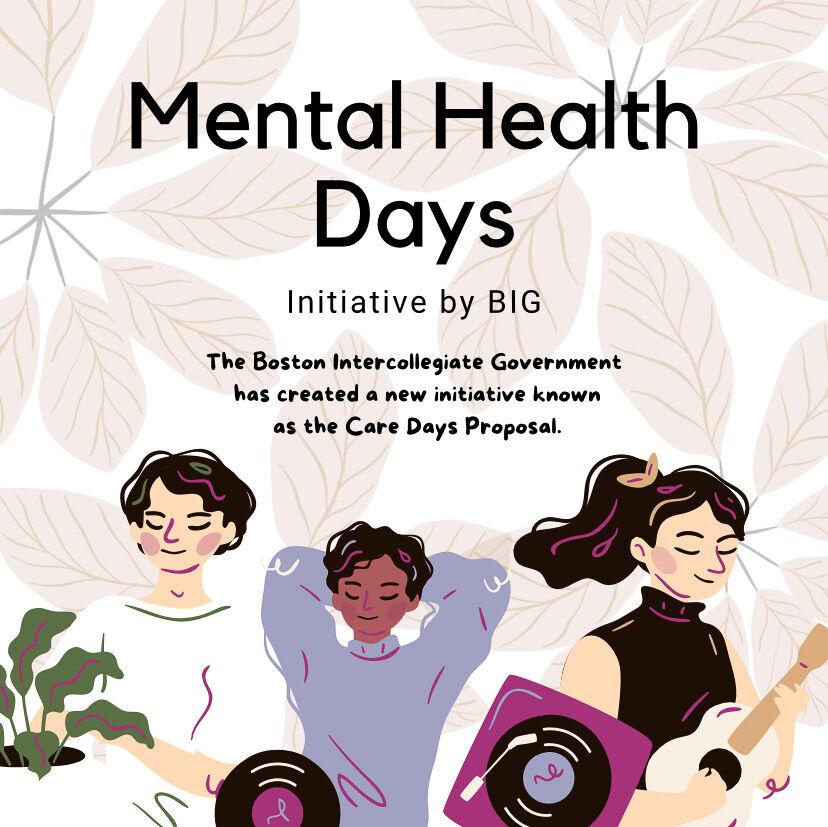Research has shown that increased anxiety and depression are some of the negative mental health outcomes of online learning among students. The reliance on digital technology and an online form of learning has exacerbated the situation. Data from the U.S. National Library of Medicine states that between 15 to 23 percent of college students with mental illnesses believe they have a detrimental impact on their academic performance.
During the pandemic, the members of the Boston Intercollegiate Government noticed an upsurge in mental health resources requested by students.
BIG is a non-partisan, student-led governance organization that represents over 130,000 students in the greater Boston area. To address the issue of mental health among students, BIG created the Care Days proposal, which would help students get some time off from their rigorous academic schedules.
The initiative will allow all the students to take three mental health days off during a semester to help prevent exhaustion and mental health crises.
According to the proposal put forth by the BIG, the program will be a database that the university monitors, where students can request to have the days off and automated emails are sent to the professors. Once a student reaches the three-day limit, they will receive an email with resources on counseling and other university resources. Additional steps allow the universities to identify and reach out to students going through any minor or serious issues, and will be able to take effective steps to address them. Students who attempt to take two consecutive days off will be denied access, and for any exceptional circumstances, they will be required to contact the point of contact.
Dhruv Naik, a member of the UMass Boston Undergraduate Student Government’s Executive Cabinet, is also the project lead for the Care Days Initiative.
“The COVID-19 pandemic has emphasized what we already knew,” said Naik when asked about the significance of this endeavor. “Being a college student these days is tough, especially for international students and first-year students who have to adapt to a completely new life. So, I co-created this initiative with the help of students who have too much on their plate. Instead of being overburdened and feeling overwhelmed, students can now take an effective breather and reorganize in a way that will be helpful to them. This initiative will benefit students’ mental health and their grades, and ensure UMass Boston is able to help and support with the help and support students deserve.”
A survey conducted by the American Council on Education found that 73 percent of university presidents ranked mental health as one of the most pressing issues among students. As a result, if such projects are sustained, they have the potential to improve the lives of students on campus and to shift the paradigm of mental health stereotypes.
“The mental health and safety of students is any university’s priority, but it has been difficult to implement a single initiative that will apply to all,” commented Naik when asked about the prospects of the initiative becoming a trailblazer. “The methodology of this initiative is what makes it adaptable for the greater Boston area. It is not rigid and can be adapted as per the university requirements while taking feedback from faculty, students and administration in its implementation. This adaptability is what makes me believe we will see this initiative implemented not only in the greater Boston area, but perhaps even beyond.”
The University Health Services at UMass Boston offers help to students for individual counseling sessions, medication evaluation and additional information about the support found on and off-campus. The university has a professional team of social workers and psychologists to assist students with their problems by providing mental health services. You can email UHS at [email protected]. The Counseling Center’s phone line at 617-287-5690 will connect to a crisis counselor for any urgent or emergency concerns.

